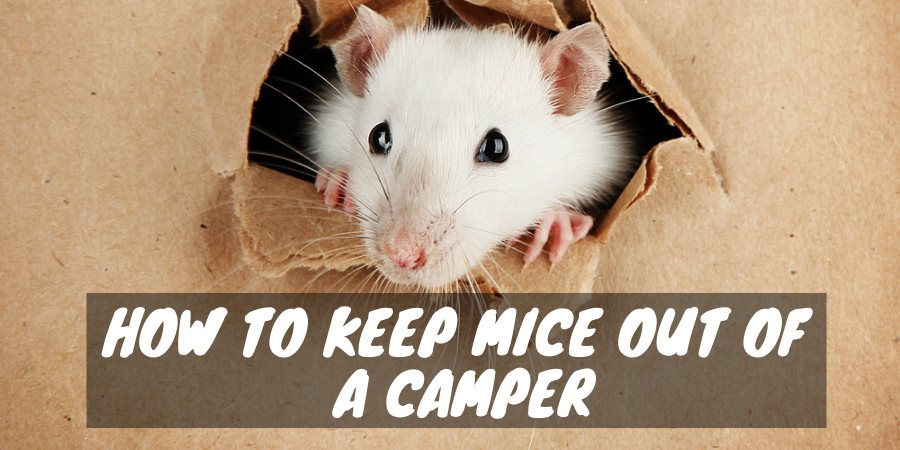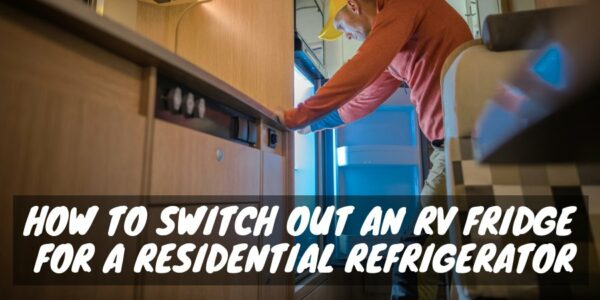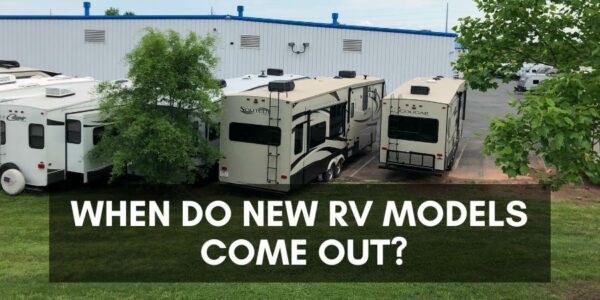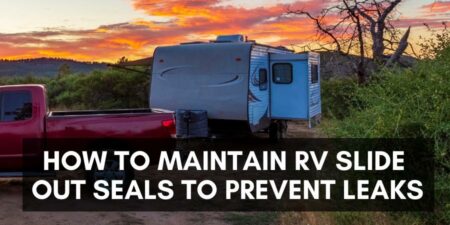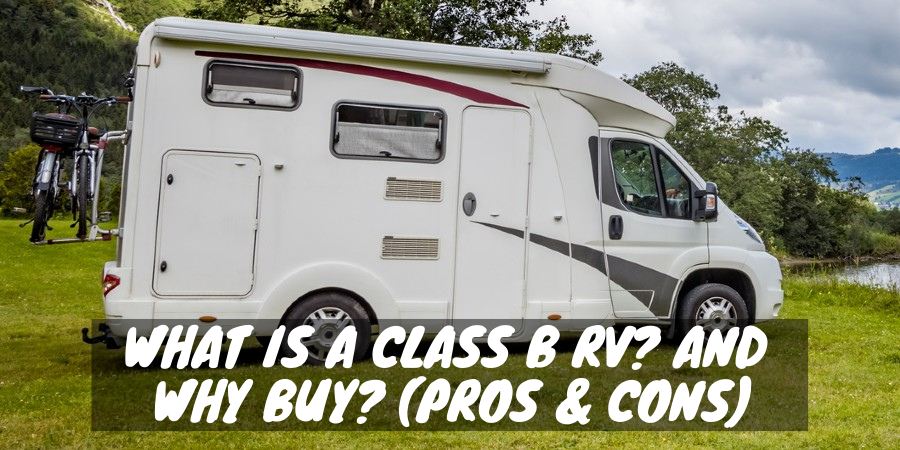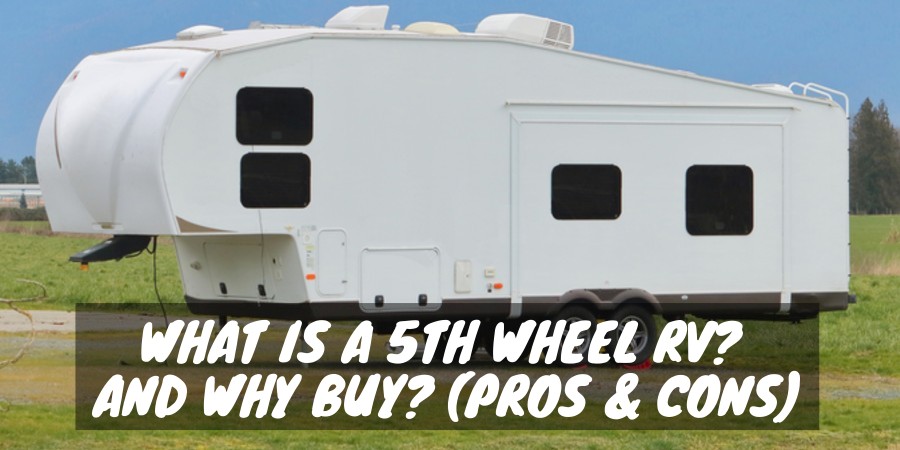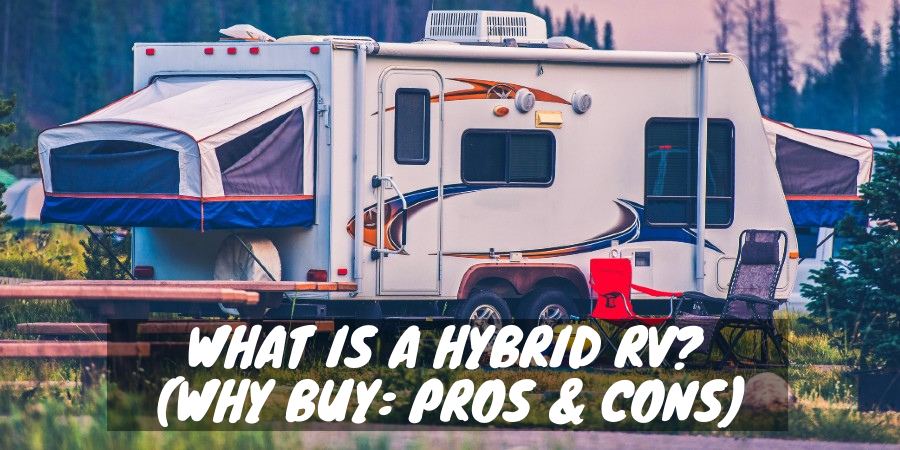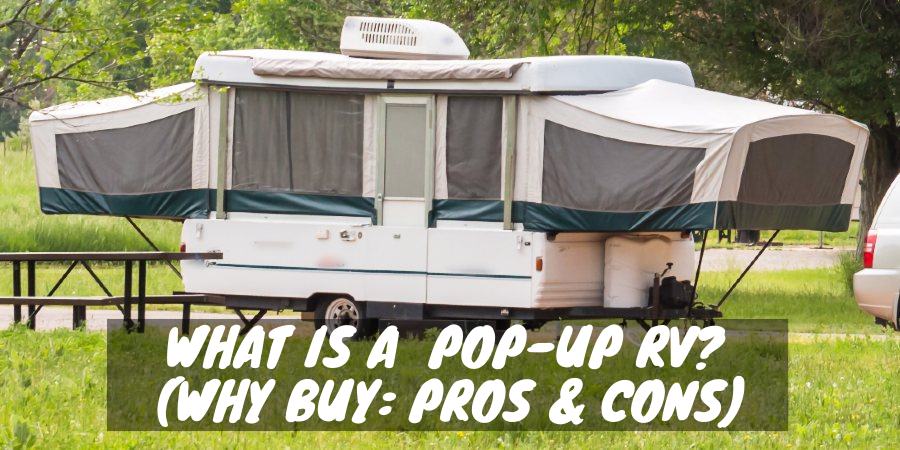Did mice move into your camper? For RVers, a mouse visit isn’t uncommon, but you certainly don’t want to encourage them to stay. Mice can wreak havoc inside a camper, as well as leave behind unhealthy droppings that carry disease.
There are many products and tips on how to mouse-proof a camper to prevent damage, but not all of them work effectively.
Following the guide below, you’ll learn which products and tricks actually work to achieve a mouse-free camper.
How do I know they work? I use them myself and haven’t had a mouse in my camper for years!
Why Mice Find Campers Inviting
Mice will enter your camper for three reasons:
- To look for food or water
- To find a safe place to nest
- To get out of the cold
During camping season, food and crumbs will be in your RV, so any mice that sniff it out will appreciate an easy meal and keep coming back for more.
Pregnant mice will look for a safe place to nest. Recreational vehicles are ideal as there is an abundance of nooks and nesting materials both inside and in the undercarriage of your camper that will keep baby mice safe from predators.
A warm camper in the woods on a frigid night will draw mice, as will the protection from the elements an empty recreational vehicle sitting in storage provides.
Now that you know why mice enter a camper, I can explain the best ways to keep mice out of an RV that really works.
How Mice Can Damage Your RV
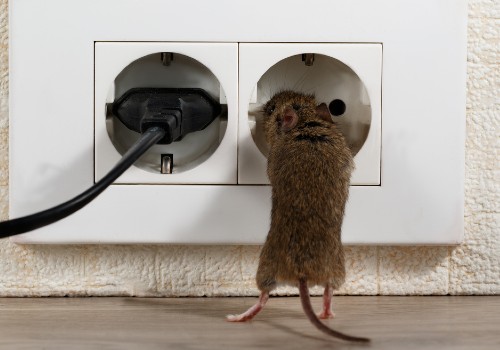
Before we get into how to keep mice out of your RV, let’s look at the real damage mice can cause if they do get in.
Mice chew on just about any material, including:
- Wood
- Fabric
- Plastic
- Foam
- Carpet
- Rubber
If a mouse is on a real mission, they’ll even chew through thin aluminum, including foil and screening, with little effort.
RV Wiring Damage From Mice
Wiring damage from mice inside recreational vehicles is on the rise, namely due to modern wiring sheathing made from soy-based materials, which mice find delicious.
It doesn’t take much nibbling to uncover bare wires that cause electrical shorts or even fires in a recreational vehicle.
RV Food Storage Destruction by Mice
Once a mouse locates food, it will keep coming back for more.
There is nothing more disgusting than reaching for your chips only to discover a hole in the bag and plenty of mouse droppings.
Mice can quickly ruin a camper’s food supply in just one night, resulting in both a messy cleanup and the added expense of having to replace everything.
Remember that mice can chew through plastic, even thick Tupperware-style containers, so proper food storage while camping or during storage is crucial to prevent damage.
Use canned food, or store loose, bagged, or boxed items in stainless steel canisters with locking lids so mice can’t get access.
Mice Damage to Camper Furniture and Carpeting
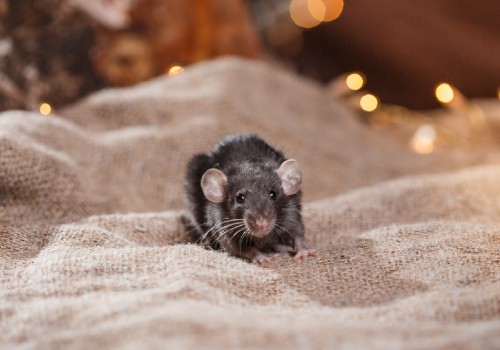
Just like electrical wiring, most newer foam padding or insulation materials used in campers have soybean-based ingredients that attract mice!
A nesting mouse will scour a camper for any soft materials and bring pieces they chew off back to their hiding spot.
RV rodent damage includes missing chunks of foam padding, carpeting, curtains, or window shades that are costly to replace.
Plumbing Line Leaks Due to Chewing Mice
PEX plumbing is an RV staple. While it’s durable against extreme temperature conditions, it offers little protection against gnawing mice.
A small hole in a water line can lead to catastrophic damage to RV floors and walls, so keeping mice out of your camper is essential to prevent such issues.
How to Keep Mice Out of a Camper
What’s the secret to keeping mice out of your RV?
There is no one solution to prevent mice in your camper.
You must have a comprehensive approach that involves the prevention and discouragement of mice in your particular travel trailer, motorcoach, fifth-wheel, or truck camper. If you see evidence of mice living in your camper, you also need the best eradication plan.
Next up are the best ways to stop mice from getting into your camper.
How to Seal Your Camper Against Mice Invasion
If you don’t do everything possible to seal off entry points into your RV, you’ll have difficulty keeping them out.
Mice can squeeze through gaps as tiny as 1/4-inch in diameter. Knowing the best way to find and seal off gaps in your RV exterior to stop mice is essential.
While many online discussions about mouse-proofing a camper talk about using spray foam or stuffing holes with steel wool, these two methods aren’t that effective.
Mice hate chewing on steel wool, so instead, they pull the wool from the gap to gain entry.
Also, steel wool will eventually rust and fall out, leaving your camper unprotected.
Here is the best long-term solution to seal a camper exterior against mice:
Step 1. Locate Points of Entry
Locating entry points can take several hours of searching, depending on the size and type of your RV.
Motorhomes will have more entry points because of the engine compartment. Basement storage compartments also have possible gaps into the RV interior.
Start at the roof and work your way down to the undercarriage, noting every spot mice can enter and whether the area needs a solid cover or a mesh cover that allows airflow.
Remember that vents are just as vulnerable to mice as holes around wiring or pipes.
Step 2. Gather Supplies to Seal Gaps Against Mice
Here are the best materials to use to seal mice out of your camper:
- Stainless-steel wire mesh (chicken wire)
- Thick-gauge aluminum or stainless-steel sheet metal
- Copper mesh material
- Silicone sealant
To fully seal your camper, you’ll need a combination of these supplies, and it’s always smart to keep some extras in your RV emergency repair kit.
Step 3. Build Your Barriers Against Mice
For gaps in your camper’s exterior over 1/4-inch, you’ll need to attach a metal barrier.
For areas that require airflow, use a fine chicken-wire mesh screening that won’t rust. Do not use window screening.
Remember to cover these areas:
- Behind exterior vent louvers on the fridge, water heater, and propane access doors
- Under your refrigerator roof vent
- Around your rooftop sewer vents
- Around the air intake pipe for the furnace
For areas that don’t require airflow, use solid metal sheeting precision cut to tightly seal gaps.
Use short stainless screws, clips, or the sealant to hold the material in place.
For holes too small or difficult to cover with metal, you’ll need to use copper mesh and sealant.
Copper Blocker Pest Stopper is ideal for filling small gaps. Top it off with a high-quality silicone sealant, which gives you a mouse-proof barrier.
Copper mesh does not rust, and if a mouse does chew on it, it’ll stick in its teeth, causing the mouse to stop.
You must use a sealant product, as mice will chew through caulk. The copper mesh is easy to slip into the smallest spaces using a putty or pocket knife.
How to keep mice from climbing tires is another common question RVers ask.
The best way to stop mice is to make a sheet metal tube where one edge sits on the ground, and the material circles the tire. It needs to be at least 12 inches tall.
Seal the edges smoothly with aluminum foil tape so the mice can’t climb it when they keep sliding off the metal.
Park Your Camper to Deter Mice Visits

Want to Connect With a Community of Over 1,078 RV Enthusiasts?
Where you park a camper has a direct impact on how many mice will come around. These tips apply for camping trips as well as during storage of your RV.
If possible, always:
- Park on a cement or solid surface
- Avoid parking under trees or close to bushes
- Avoid parking in tall grassy areas
- Stay a good distance from dumpsters or garbage cans
- Park in flat areas that don’t form rain puddles
Keeping a camper away from things that attract mice, like water or garbage, is a great start.
Mice are also good jumpers and will use nearby bushes or low-hanging branches to reach a camper.
Field mice live in tall grass, so parking a camper in a field may offer you beautiful views, but you’re bringing dinner right to the mouse’s table.
Products That Work to Keep Mice Out of RVs
Do ultrasonic mice repellant products stop mice from making a home in a camper?
From years of camping experience, I can attest that electronic pest-repellers sold at camping or home improvement stores either don’t work at all or are very short-term to keep mice out of your camper.
There are some cost-effective methods to deter mice that will work if you refresh them every week or two.
Full-time and weekend RVers use these tricks to deter mice with great success:
- Botanical pest-repellant pouches such as Stay Away Rodent or Fresh Cab
- Scented dryer sheets
- Cotton balls or fabric soaked in peppermint, citrus, or lavender essential oil
Mice have a strong aversion to certain scents, even ones humans find very pleasant.
Not only are these tricks effective at keeping mice away, but they are also safer to use, especially around kids or pets.
I find the scent on Bounce dryer sheets lasts much longer than using essential oils, and they are much easier to tuck in and remove from all the nooks and crannies around a camper.
Irish Spring soap possesses a strong scent, yet for optimal effectiveness, it requires shaving into smaller pieces, a process that can be quite messy. This is the primary reason I advise against choosing this option.
Mice in Your Camper? Why You Must Use Mouse Traps
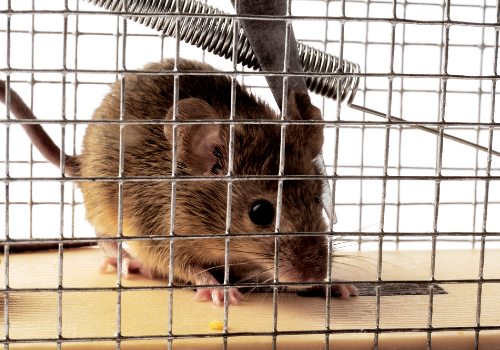
So you see mouse droppings and now need to eradicate mice from your camper.
You may reach for mice poison that comes in pellet or brick form, but you need to rethink that decision.
Mice may eat the poison but then crawl off into some inaccessible wall or cabinet to die.
When this happens, you have no way to stop your camper from stinking like a dead animal until the mouse finally dries up. Yuck!
As much as snap or sticky traps may be inhumane to catch mice, they’re the best solution to get an active mouse infestation out of your camper quickly.
Do remember to bait your traps with food mice can smell and love. Cheese has little to no odor and is not the best option to catch mice.
If you’re a gentle heart and will check traps regularly, you could opt for a live trap set along baseboards or walls and release the critters you capture elsewhere.
There’s No Need to Have Mice in a Camper
RVs and mice do not need to coexist.
A female mouse can produce 100 babies a year, so don’t let them take up residence in your camper!
Preventing mice from getting into your camper is the best way to avoid the problems they can cause, but it’s easy to miss filling every gap and crack they can slip through.
When you form a complete mouse-eradication plan using the tips above on how to keep mice out of a camper, you can enjoy pest-free camping season after season!
How to Prevent Mice in Your RV and Deal With Their Mess (Video)
"Man cannot discover new oceans unless he has the courage to lose sight of the shore."
-- Andre Gide

